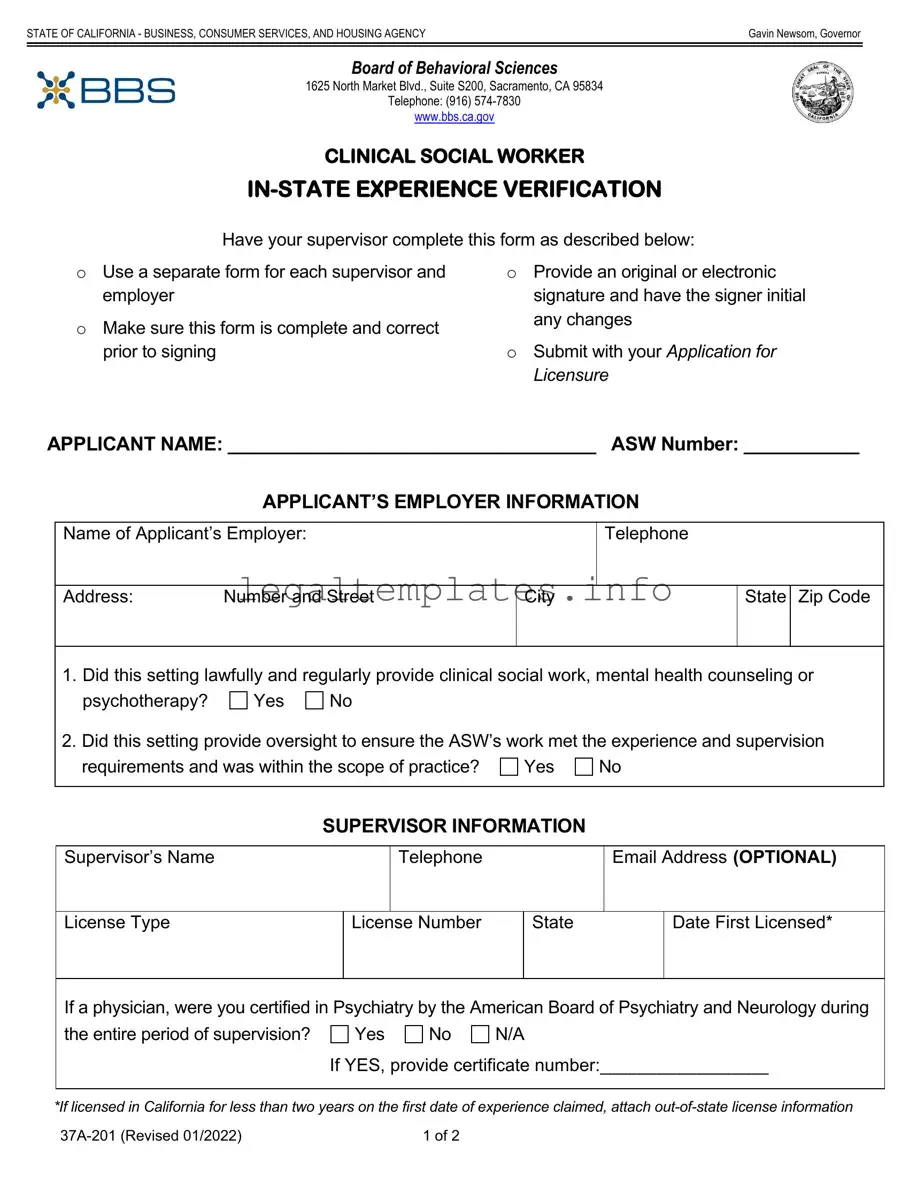What is the purpose of the Clinical Social Work Experience Verification form in the State of California?
The Clinical Social Work Experience Verification form is a crucial document used by the Board of Behavioral Sciences in California to verify the clinical work experience of Associates of Social Work (ASW) candidates. It is designed to ensure that the experience gained by applicants meets the state's specific requirements for licensure as clinical social workers. The form is filled out by the applicant's supervisor, detailing the nature of the work performed, the setting in which it was completed, and the supervision provided. This process is vital for maintaining the high standards of practice expected of licensed clinical social workers in California.
How should the Clinical Social Work Experience Verification form be completed and submitted?
To complete and submit the Clinical Social Work Experience Verification form properly, the supervisor needs to use a separate form for each position and employer where the ASW candidate gained experience. The form must be filled out completely and accurately before the supervisor signs it. It is important for the supervisor to provide an original or electronic signature, and initial any alterations made to the document. Once completed, this form should accompany the candidate’s Application for Licensure and be submitted to the Board of Behavioral Sciences following their submission guidelines.
Can electronic signatures be used on the Clinical Social Work Experience Verification form, and are there any specific requirements for making changes to the form after it’s been signed?
Yes, electronic signatures are permitted on the Clinical Social Work Experience Verification form. This flexibility facilitates the submission process, making it more convenient for supervisors and applicants. If there need to be changes to the form after it has been signed, the person who signed it must initial each change to validate them. This ensures that all modifications are acknowledged by the signer and helps maintain the document's integrity.
What happens if the information provided on the Clinical Social Work Experience Verification form is inaccurate or incomplete?
Submitting inaccurate or incomplete information on the Clinical Social Work Experience Verification form can have serious consequences. The Board of Behavioral Sciences treats the integrity of this information very seriously as it directly impacts the licensing process. Knowingly providing false information, omitting pertinent details, or assisting an applicant in obtaining licensure through deceit can lead to the denial of the license application. Additionally, it can result in disciplinary action against a licensee who is found to have engaged in such misconduct. Therefore, it is of utmost importance that all information on the form is truthful, complete, and verified for accuracy.



